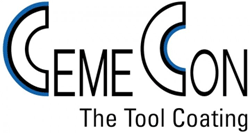 The world is experiencing a seismic shift in mobility, with the traditional combustion engine under unprecedented scrutiny. As vehicle concepts with alternative drives accelerate, the automotive landscape is evolving into a dynamic and competitive arena. This transformation is not only reshaping mobility but also has profound implications for industries intertwined with the automotive sector, including machining, tooling, and coating industries.
The world is experiencing a seismic shift in mobility, with the traditional combustion engine under unprecedented scrutiny. As vehicle concepts with alternative drives accelerate, the automotive landscape is evolving into a dynamic and competitive arena. This transformation is not only reshaping mobility but also has profound implications for industries intertwined with the automotive sector, including machining, tooling, and coating industries.
A New Era of Mobility
Alternative mobility solutions, such as electric vehicles (EVs), autonomous systems, and connected cars, are being driven by technological advancements in telecommunications, IT, and online platforms. These industries, accustomed to rapid product cycles and unconventional approaches, are challenging traditional methods. Their focus on microcosms, where small-scale innovations yield significant results, is redefining success. Companies embracing innovation today are better positioned to thrive in tomorrow’s competitive markets.
Challenges for the Machining Industry
The rise of high-performance materials in emerging sectors such as aeronautics, biomedicine, and advanced communication presents a unique challenge for machining industries. These materials, often lighter yet more difficult to process, demand unprecedented precision and smaller tolerances from production tools.
Key Challenges:
- Material Diversity: A wide variety of materials with specific properties requires tailored machining processes.
- Time-to-Market Pressure: The need for faster production cycles necessitates tools that can deliver precision under tight timelines.
- Small Batch Production: Increased customization means smaller production runs with unique specifications, raising complexity.
Adapting to the Future
To succeed in this evolving landscape, machining companies must focus on several critical factors:
- Openness and Flexibility: Closed systems with rigid parameters are becoming obsolete. Open systems that allow for maximum customization, adaptability, and sustainability will lead the way.
- Brand Differentiation: In a crowded market, brands must stand out with unique features, including performance and visual appeal, such as distinctive tool color schemes.
- Sustainability: Companies must strike a balance between protecting intellectual property and enabling collaborative innovation.
Coating as a Strategic Tool
In this competitive environment, coating has emerged as a strategic differentiator rather than a commodity. Precision tool manufacturers must prioritize coatings that address specific market needs with speed, flexibility, and innovation. Companies like CemeCon AG are leading the charge, offering cutting-edge coatings tailored to market demands. With the capacity to coat up to 80,000 precision tools daily, they epitomize the industry’s drive for performance and quality.
The Road Ahead
The future of mobility and machining is not just about meeting new challenges but about embracing the opportunities they present. As industries converge and collaborate, high-performance materials, precision machining, and innovative coatings will shape a new era of production. For businesses, the path forward lies in adaptability, speed, and a relentless focus on innovation.
The shift away from traditional automotive paradigms heralds a broader transformation that will redefine entire industries. Those prepared to innovate and evolve will lead the way in this exciting future.



